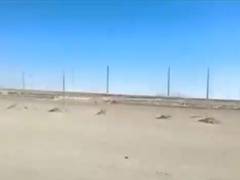Chinese Communist Party seeks to have more centralised control: Report
Beijing [China], March 5 (ANI): Under Xi Jinping, the Chinese Communist Party (CCP) plans to change the structure of the government and make it even more centralised, Asia Times reported.
The second plenary session of the 20th Chinese Communist Party Central Committee, which lasted three days, concluded on Tuesday. The session closed with major plans to restructure the government.
The Party and State Institutional Reform Plan is a proposal that must ultimately be adopted by the National People’s Congress (NPC). Its stated goal is to increase efficiency in order to achieve high-quality growth while maintaining social stability.
But is that all there is to it? A closer examination reveals that the strategy aims to advance the centralisation and state control philosophies that President Xi Jinping has long advocated.
According to a report in Asian Times, close observers could recall an article Xi wrote in July 2020 that called for strengthening the party’s establishment when he said in his speech at the plenary that the Party must enhance its leadership in government agencies and assure that they will fully implement its planned reform.
He claimed that the CCP had already established more than 3,200 party committees, as many as 1,45,000 working groups and 4.68 million local party organisations in China in that piece.
Afterwards, Xi added, “No other political party in the world has such an advantage as ours.” He wrote, a party can only profit from such an advantage if it has strong executive power and a small organisation that functions the way “a body controls an arm, which controls a finger.”
He said that the frontline officer, or the so-called “last mile,” cannot obstruct the commands of the central authority.
The concept of “a body controlling a finder” was suggested by Chinese political theorist Jia Yi, who was born around 200 BC during the Han Dynasty. Jia argued that the country’s political and economic authority should be centralised and that the central government should have complete control over feudal lords, read a report in Asia Times.
The 2020 essay that Xi wrote in the Jia style was not an anomaly. A piece applauding Jia’s idea was published in the Central Party School newspaper (Study Times) in October 2021.
The annual meeting of the NPC will begin on March 5. The proposal’s specifics have not been made public, but according to Xinhua, the Party will oversee and coordinate all central and local government departments in order to enhance governance and make informed judgements to address the nation’s issues.
The world has entered a new phase of instability and change, according to Xi, who spoke at the second plenary session.
The world has entered a new phase of instability and change, according to Xi, who spoke at the second plenary session. “At present, the globe’s significant changes unseen in a century are accelerating,” he said.
“Strategic possibilities, risks, and challenges coexist in this moment of our country’s development, while uncertainties and unpredictable elements are growing,” he remarked.
He said that China’s economic recovery has been hindered by the country’s reduction in demand, supply shocks, and decreasing growth expectations, while the society is dealing with numerous protracted conflicts. He asserted that all party members should maintain vigilance and make preparations for conflict because unforeseen events could happen at any time.
In recent years, the Party has placed a high priority on population control among the general public.
Thousands of enraged protesters held white papers and marched through the streets of various cities in the city in November, demanding the repeal of China’s zero-Covid policy.
Beijing was compelled by the demonstrations to relax its anti-epidemic regulations in December, but the abrupt shift in strategy caused a dramatic rise in Covid deaths.
Homebuyers and suppliers protested repeatedly in front of the Evergrande Group’s Shenzhen headquarters in 2021 and 2022 as they suffered financial difficulties caused by the heavily indebted real estate company.
The Beijing Youth Daily stated in a commentary on February 28 that the two primary themes of the upcoming reform, which ostensibly aims to create a modern socialist country and advance the “great rejuvenation” of the Chinese nation, are streamlining the State Council and changing government functions.
It claimed that throughout the previous four decades, the State Council’s structure had changed eight times and the Party’s organisational structure had undergone five reforms. It was stated that State Council’s ministries and departments have decreased gradually from roughly 100 in 1982 to 26 in 2018.
The State Administration for Market Regulation, the National Healthcare Security Administration, and the Ministry of Ecology and Environment were among the new organisations created in 2018 to address issues that could not be handled by individual ministries, Asia Times reported.








